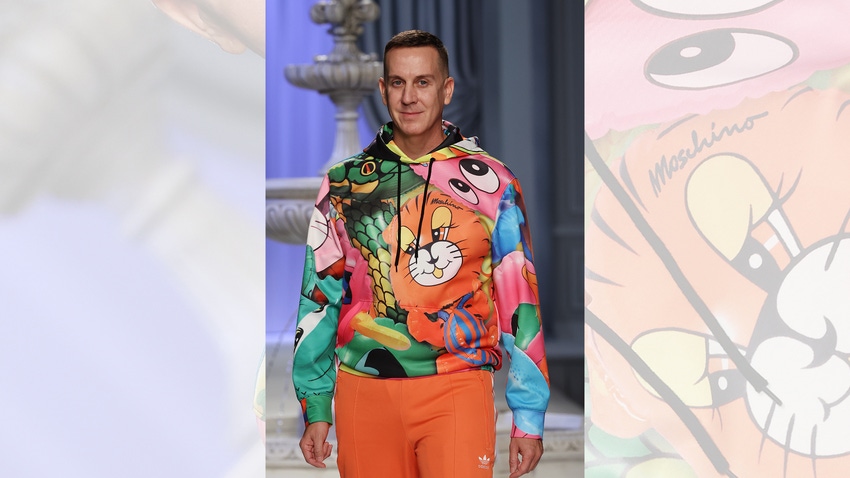Jeremy Scott’s departure from Moschino may make room for other designers to create haute couture-licensed fashion or give way to the quiet luxury trend.

Pop culture has influenced fashion for decades. Licensed fashion collaborations have become more elevated in the last decade. Consumers have demanded fashionable licensed apparel for quite some time – and a simple logo slap on a white T-shirt isn’t enough anymore. Licensors and licensees have made a concerted effort to launch apparel collaborations that are less of a novelty and more of a part of our collective wardrobe.
While pop-culture fashion is prevalent in everyday apparel, the fantasy of pop-culture fashion is brought to life on the runway during events like Fashion Week, on the red carpet at award shows and The Met Gala. No other designer has bridged the world of fashion and pop culture more than Moschino designer, Jeremy Scott. He has made licensed collections with Barbie, Disney and Universal Monsters that embody the brand while creating attention-grabbing garments on the catwalk.
In March, Scott left Moschino. While there is no word about what is next for Scott, his contribution to branded fashion is legendary. But he isn’t the only designer who combined elevated style with pop culture.
Perhaps the most-obvious successor to Scott regarding haute couture licensed fashion is Christian Cowan. He created a line of “Powerpuff Girls” apparel in 2019 and, more recently, “Teletubbies” for a limited-edition collection featuring the characters in signature fashion poses printed on hoodies, T-shirts and denim.
Unique Vintage, based in California, creates retro-inspired licensed fashion collaborations with brands like Cloudco and “Care Bears,” Peanuts and DC Comics. The label is also size-inclusive, ranging from XS to XXXL.
Givenchy has worked with The Walt Disney Company on an array of luxury designer clothing ahead of the studio’s 100th anniversary. Disney has also worked with Gucci on branded accessories and streetwear brand, Kith, on tees.
Not every heavy metal fan dresses like Eddie Munson from “Stranger Things.” Warner Music Experience recognized the demand for elevated streetwear from fans of bands like Trivium and Gojira and worked with apparel brand, Shibori Threads, on an apparel drop.
Licensed fashion brands are also making a mark in the metaverse. In March, Decentraland’s Metaverse Fashion Week invited all who have a passion for fashion to look at virtual designs by DKNY, Balenciaga and the late Vivienne Westwood.
While most licensed fashion is obvious, a fashion trend may affect future licensed apparel. And, like everything else, if the pendulum swings one way, it will swing just as quickly in the opposite direction. “Quiet luxury,” a phrase often used by social media and fashion tastemakers, eschews bold, logo-heavy looks made popular with the athleisure trend for more subdued clothing with finer branding. Shows like “Succession” exemplify the movement as the 1% wear seemingly “basic” clothing but, with some research, discover the wardrobe has a hefty price tag. HBO has released a “Succession” merch line with branded drinkware, apparel and accessories. What’s missing? A “capacious” tote bag (all the more reason to justify a trip to Burberry.)
This year’s Licensing Expo theme is Fashion and will have a Fashion Showroom dedicated to licensed fashion on the show floor. For details, go to LicensingExpo.com.
About the Author(s)
You May Also Like








